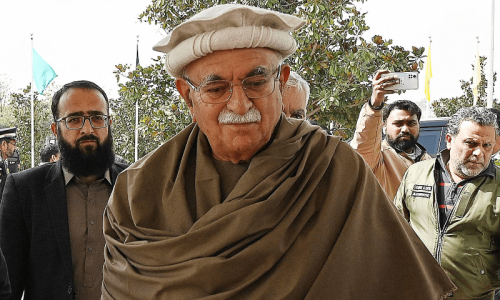EVERYONE would like to see at work the principles of fair play and equitable distribution in managing the scarcities of electricity. This sentiment is understandable when citizens of one city have to endure long hours of loadshedding while they keep hearing stories of the relatively less stressful lives of people in other cities where there is little load-shedding. It is equally frustrating to learn that vast exemptions from load-shedding are being enjoyed by certain categories while the great mass of the citizenry, especially those who are prompt in paying their bills, are suffering on account of the outages. Different sectors of industry are also pressing their respective cases for exemption.
Managing these scarcities is a difficult job, at par in fact with the job of eliminating the scarcities. But a realistic view of the situation confirms that the scarcities are here to stay, they can be mitigated but it is not reasonable to expect that they will disappear altogether. Therefore, how the scarcities are managed is a permanent problem that requires proper redressal at the highest levels of policymaking. Just and equitable distribution is easy enough to demand, but it is not so easy to deliver. The distribution has to occur geographically, as well as across various categories of stakeholders. In order to do this, it is necessary to generate a regime of entitlements in the first place, so a merit order of priority can be decided. And generating equitable entitlements for scarce public resources is something the state in Pakistan has always struggled with, whether it is the allocation of water or that of fiscal resources.
What is needed is a policy framework that establishes how the allocations are to be governed over a long-time horizon. Something along the lines of the water-sharing accord of 1991 or the NFC award is required in the electricity sector to put to rest resentments that are naturally arising from the way current allocations are being carried out. One model of achieving this is through purely commercial logic, like what KESC is doing in Karachi where the burden of load-shedding falls largely on those communities where bill recoveries are weak. This model cannot be applied at a national level though. One cannot imagine how it would work in deciding allocations between entire distribution areas, or even between different sectors of industry. Therefore a more nuanced policy framework needs to be developed to mana-ge the scarcities on a national scale. Developing this framework is something the new government should include in its agenda for tackling the power crisis.












































